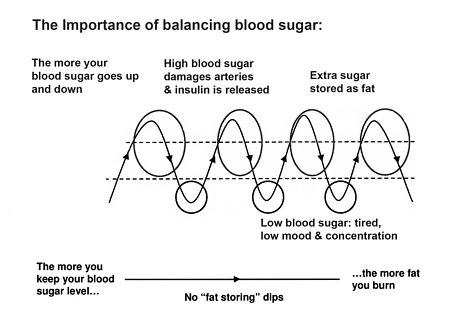A Selection Of My Videos
A Little Bit About Nutrition & Various Popular Diets
As a hypnotherapist helping my clients to control their weight, I often hear stories of ‘yo-yo’ dieting. Along with hypnosis and other techniques used to address ingrained patterns of behaviour, I wanted to be able to confidently recommend - to those interested in nutrition - a base platform way of eating, to improve overall health and vitality. To reconsider ‘what’ and ‘how’ they were eating and the significance and effect this could have on future maintenance of a healthy body weight. To find a system based on scientific research that was not only nourishing and satisfying, but easy to stick to, in order to work alongside the powerful tool of hypnosis. After looking at current research, reading a lot of books and engaging in further nutritional training, I began to critically evaluate the various popular diets on the market and came to some interesting conclusions.
4 Popular Methods of Losing Weight:
Calorie counting and restriction is a method used by many people and indeed is a very popular choice of diet, basically working on the principle if the energy expenditure of calories is greater than those taken in, weight will be lost. It is true that you can lose weight on this type of diet, however there are a number of factors which are not taken into consideration and can work against long-term weight maintenance. Firstly when you reduce calorie intake the body responds by behaving as if food is scarce and slows the metabolism down to make the most use of the little calories available. This impacts on the resting metabolic rate with the body choosing to burn muscle (lean body tissue), with the result that a lot of people inevitably put the hard lost weight back on as fat and not muscle.
Food replacement diets have been another popular way that some of my clients have previously lost weight. Including Lighter Life, Cambridge and Slim Fast, this method offers a system where food is replaced by a product in the form of a liquid, soup, shake, or perhaps a carefully formulated meal package (including bars). A lot of weight can be lost but this type of diet can compromise health and may not provide adequate re education on how and what to eat when coming off the program. Dehydration can also occur and loss of body mass (BMR) can be significant without an appropriate exercise programme to rebuild lost muscle. This method is in fact a more extreme form of calorie counting.
A diet very low in fat such as Rosemary Conley’s original plan and also Slimming World may encourage a diet deplete in essential fats (the body cannot produce these by itself) which are important not only for the absorption of fat soluble vitamins such as A, D, E, but also for biochemical functions; to insulate nerve cells, keep skin and arteries supple and hormones balanced and to prevent heart disease. This type of diet also tends towards high amounts of carbohydrate to counter balance the loss of satiety by removing fat and may be a false economy as carbohydrates can provide the same amount of calories as the fat that has been removed.
Conversely the high protein ketogenic diets the best known amongst them being the Atkins Diet, offers an impressive amount of weight lost in the first week (up to 1 stone). Mainly consisting of eating meat, eggs and fats and severely limited carbohydrate intake (approximately 35% protein, 60% fat, 5% carbohydrate), the theory behind this is that when the body has little carbohydrate to use as available energy, it will look towards the glycogen stores and because 4g of water cling to every gram of fat this is actually what accounts for the dramatic initial weight loss. When the glycogen stores become deplete the body will only then start dissolving fat, causing the abnormal metabolic state called ketosis. Ketones are powerful acids, which decrease the ph of the blood. Although resent studies have found this type of diet to be more successful than low-fat, high carbohydrate diets with health benefits including improved blood lipids, it has also been found that a diet including carbohydrate allows for the serotonin ('feel good' hormone) levels to increase, accounting for why some people on a high protein diet feel low of mood, not to mention suffering constipation, bad breath, dry mouth, tiredness, insomnia and other reported side effects including possible long term consequences related to the kidneys.
Other systems of losing weight include, food combining of which there is no research to back this method up.
The importance of a balanced diet and the role of balancing blood sugar for long term health and sustained weight loss:
All the various diets discussed can help with weight loss, but perhaps the common theme is that they are hard to follow long term and when coming off them the risk of the person relapsing into old eating habits is significant. Therefore a well balanced diet including all the main food groups: protein, carbohydrate and essential fats (so to avoid any cravings which may result from avoiding or severely limiting particular food groups), must be the answer to health and sustained weight maintenance.
Looking back at how our diet has changed over thousands of years from a diet rich in unprocessed protein, fat, carbohydrate and fibre (essentially from natural sources), with tiny amounts of sugar (from the limited fruit available) to today - our western diet of de-natured high processed food including more sugar, processed carbohydrates, saturated fats and cereals than ever before. Some misguided assumptions made from research in the last 50 years regarding fat as unhealthy and conducive to weight gain, leading to the promotion of lower fat diets to help fight the obesity problem, now contradicted by the emergence of new collated statistical data showing that we have actually grown ever larger on this lower fat diet and may indeed have contributed to this potential ‘obesity epidemic’. All these factors point towards the conclusion that it is sugar and foods containing fast release sugars or processed carbohydrates that have resulted in the ever-growing obesity problem that we now face and not as was first thought the consumption of a high fat diet.
The metabolism of sugar and fast releasing carbohydrates and their role in weight gain:
Glucose is our main source of fuel for the body and is essential to the brain for healthy functioning. It is produced when we consume carbohydrate-containing foods such as pasta, bread, rice, starchy vegetables, fruit, cakes and sugar. These foods are digested and turned into glucose, which then circulates around in our bloodstream. The ideal amount of glucose in our blood at one time is between one and two teaspoons. Insulin, a hormone produced by the pancreas, helps by clearing excess glucose out of the blood and distributing and storing it in the appropriate places such as the liver or muscles as glycogen (to be used later for energy). If there is significant amounts of glucose in the blood stream - over 2 teaspoons - or if these stores become full then it is delivered to the cells and any excess is stored as fat. Long term high levels of glucose in the blood can result in damage to arteries and insulin resistance - where the pancreas can no longer cope and insulin no longer provides an effective clearing job, this can eventually lead to type 2 diabetes. Alternatively below one teaspoon can result in feeling tired, low mood and a lack of concentration leading to the desire to consume fast energy releasing high sugar foods. This of course is a short term answer and only exacerbates the problem by creating a sugar spike which in turn causes a lot of insulin to be released in order to clear up the blood.
It would seem that balancing blood sugar is the solution for maintaining an ideal weight so to avoid this fat storage and seesawing blood sugar effect. Controlling the amount and form of sugar and carbohydrate is essential for this levelling out process. Processed sugar and products containing processed white flour are digested and converted into blood sugar far faster than slow releasing whole foods and therefore can be regulated more efficiently by insulin. Proteins found in lean meat, nuts, eggs, seeds, beans and pulses do not influence the glycaemic load as indeed neither do fats in the form of mono and polyunsaturated fats from - olives, avocados, oily fish, nuts and seeds and saturated fats from meat and full fat dairy. Protein rich food can be very helpful in reducing the glycaemic load of the combined meal because protein molecules are more tightly packed and are slow to be digested, thus slowing down the release of any glucose in related foods that have been eaten at the same time.
There is mounting evidence to suggest the most effective method of weight loss and long term weight control lies with adopting a diet inclusive of all the main food groups, and consuming foods that are unprocessed and in as natural a state as possible. Limiting consumption of processed refined sugars and carbohydrates and foods which contain them, eating regular, modest portions of food with healthy snacks in between. This is the way forward and the way to break free of ‘diets’ and those dreaded scales for good.

Everything in Moderation Including Moderation:
Of course we all enjoy the odd treat - and why shouldn't we - perhaps a sneaky bar of chocolate or the odd takeaway now and again, but it is worth bearing in mind that the definition of a treat is “...an event that is out of the ordinary and gives great pleasure.” The definition of a habit on the other hand is “...a settled or regular tendency or practice especially one that is hard to give up”. In other words be mindful that the odd treat doesn’t become a regular habit.
Easier said than done...?
.... What about my habit of snacking in front of the TV every night... my lack of motivation due to my busy stressful life and general diet fatigue... a reliance on certain foods to fill those emotional needs? That’s where the use of hypnosis and modern psychological techniques come in, to help make the path easier and to assist you in obtaining freedom from the treadmill of long term 'dieting'.




